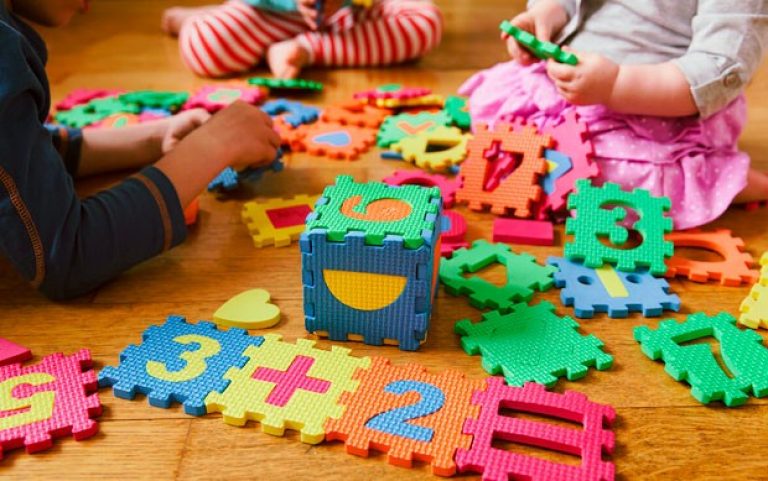Toddlers with better ‘mind-reading’ skills are more selective in their learning, research shows

When toddlers learn new words, they’re constantly assessing the reliability of adults. That’s called selective social learning.
“There is a decade of research that proves infants can differentiate between unreliable and reliable sources of information,” says Diane Poulin-Dubois, a psychology professor in Concordia’s Faculty of Arts and Science.
“Thus, they select whom to trust and learn from. Our study went further and looked at the underlying mechanism.”
Poulin-Dubois, who is also the founding director of the Cognitive and Language Development Laboratory, co-authored the published findings recently in Developmental Science. Cristina Crivello, a PhD student in clinical psychology at Concordia is the article’s principal investigator with Sara Phillips.
“We examined whether ‘theory of mind’ — higher-order cognitive abilities that help predict human behaviour and attribute knowledge and states of mind in others — and statistical learning skills play a role in selective social learning in infants,” Poulin-Dubois says.
Statistical learning is the process in which people acquire information by detecting patterns and finding regularities in the environment.
“Our results suggest that only theory of mind abilities play a role.”
Hot debate: “lean” versus “rich” interpretations
Not all researchers in the field agree.
Currently, there is an ongoing debate about selective social learning and its interpretations.
Cecilia M. Heyes, a senior research fellow in theoretical life sciences at Oxford University, posits that lower-order cognitive abilities — associative learning — are the only skills that influence selective social learning in infants.
“According to that ‘lean’ theory, the selective learning observed in infancy does not require any sophisticated cognitive skills,” Poulin-Dubois says. “A wide range of animals display this ability as well and they don’t have higher-order cognitive skills like language.”
The two Concordia researchers support the alternate “rich” interpretation — that higher-order cognitive functions, such as theory of mind, are fundamental to young children’s ability to selectively learn from others.
The study showed that children who display a greater understanding of others’ behaviour and thoughts are more selective about their learning source and are less likely to learn from an unreliable speaker.
77 infants, 4 game-like tasks
In order to better understand the nature of selective social learning, 77 infants — aged 18 months — were exposed to a reliable or an unreliable speaker. For instance, the unreliable speaker labelled a “shoe” as a “bottle”. Next, the children completed a word learning and a statistical learning task, as well as two theory-of-mind tasks.
“In the tasks, we examined if the infants could predict the experimenter’s behaviour and her preference for certain objects — and they could,” says Poulin-Dubois.
To test statistical learning, infants had to guess the experimenter’s preference for a toy based on her prior toy selection from a box full of toys.
Another task was used to measure infants’ theory of mind abilities. First, the child watched an experimenter play with two toys. The experimenter then left the room and a new toy — a small abacus — was placed in front of the child on a tray with the other toys. The child could see that the experimenter hadn’t played with the new toy.
Upon her return, the experimenter acted excited and surprised about something on the tray of toys. She asked the child to give it to her, without specifying which toy she desired.
The child handed over the abacus.
“It shows the child was able to infer what the experimenter knew based on her contact with the objects, which is quite advanced compared to rats,” says Poulin-Dubois.
“The rats are capable of learning but they don't have advanced cognitive abilities. They don't read other people's minds or speculate about their mental state, their intention, what they know or don't know.”
Even if 18-month-olds don’t have a fully developed theory of mind, she adds, there is something about their ability to analyze others’ behaviour that helps them learn selectively.
Parents, take note
Poulin-Dubois points out that some parents might think their young infants can't process human behaviour at all.
“However, parents and educators should be sensitive to an infant's requests for information. When the child asks, ‘what's that?’ or just points at something, they should not only respond but respond accurately or the child will become less responsive to us. It could slow down their acquisition of knowledge from us.”
Read the published article, “Selective social learning in infancy: looking for mechanisms”.


